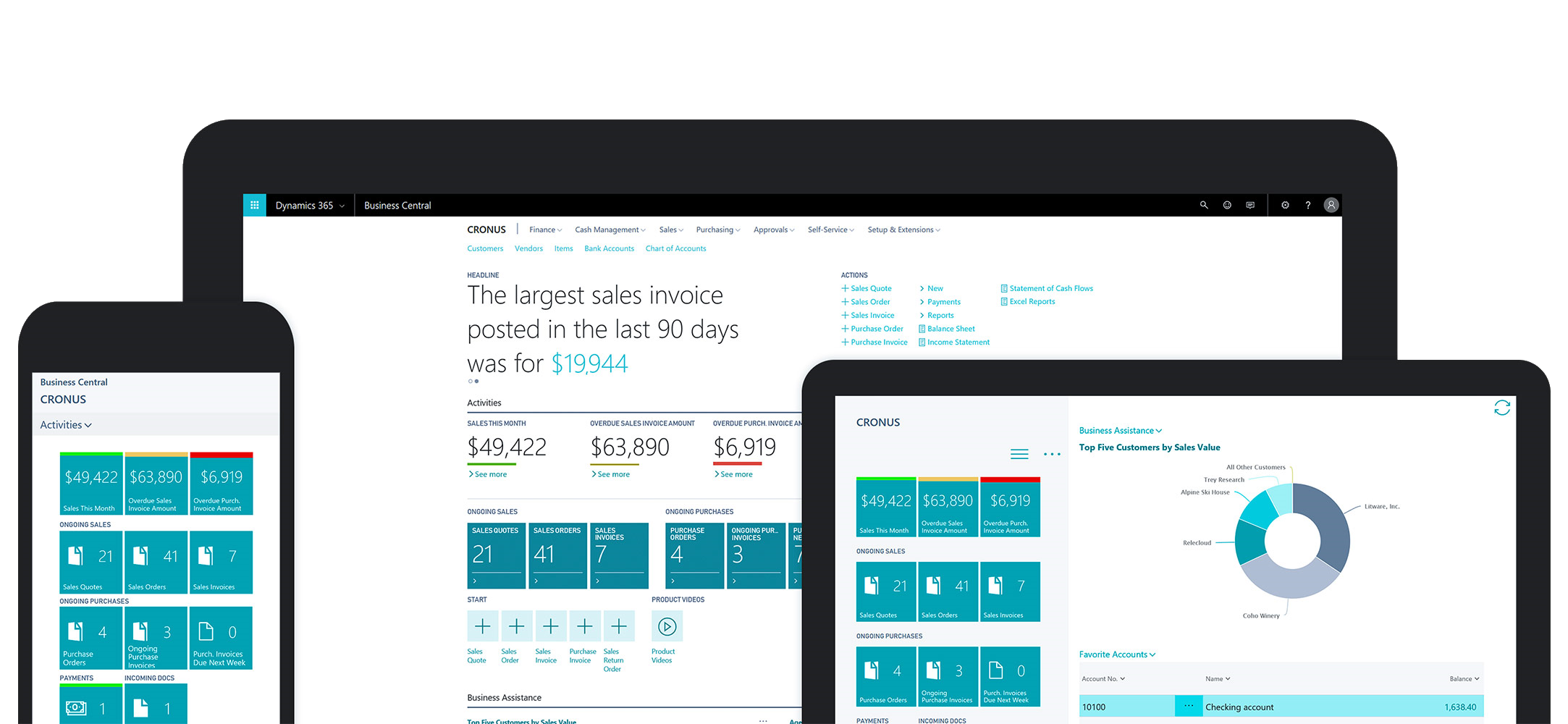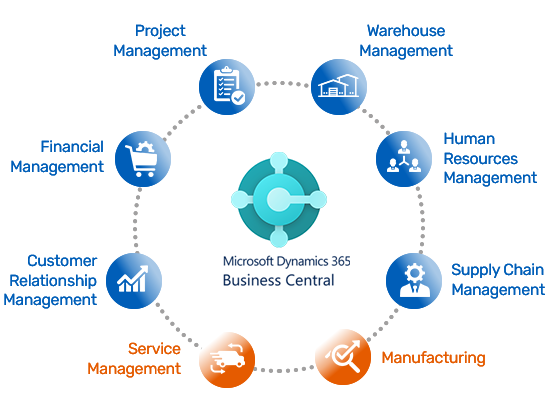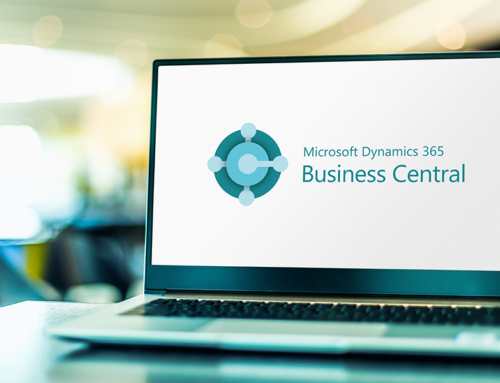
ERP can help your organisation, but how and why?
Companies often look ahead and map their future out – but they need to think of how to achieve these goals and objectives. One way is to invest in ERP business systems. ERP can help your organisation not only allow for drastic, sweeping changes to be implemented across a business, but they will, if implemented properly, help businesses leap forward.
We spoke to one of our ERP experts, Managing Director Martin Roberts, to find out just ERP can help your organisation with a system such as Business Central: “ERP is no longer the preserve of large corporations with big pockets. It’s possible to invest in an implementation of cloud based, subscription ERP systems that can begin to deliver a return on investment within a very short time frame’.
“We have witnessed plenty of supply chain disruption over the last two years. This is primarily due to COVID-19 and Brexit issues, but technology will be a massive part of the solution. ERP systems can vastly improve both the level and quality of data that companies have available at their fingertips.

ERP can help your organisation see things clearly
“This information can provide businesses with previously unseen digital insights. These give organisations information on things such as whether they need to hold more stock – because of potential supply chain disruption or slow down. Through investing in proper warehousing technology, like barcoding scanning or RFID, operations will be smoother and more efficient. This may lead to a huge productivity increase, or better use of time, which will inevitably see a period
of growth.”
A recent TechTarget/Computer Weekly survey saw automation and the Cloud rated as two of the highest priorities for companies in the UK. As a result of the pandemic, over half of respondents describe their overall IT strategy as now being “cloud-first”.
A Cloud ERP system would be critical to any type of cloud-first strategy, as Martin explains the virtues of the Cloud for organisations: “Cloud ERP marries the power of the Cloud with that of an ERP business system. The ability to provide information and data to employees who are remote working is invaluable. This gives them the tools to work efficiently from anywhere. Other benefits include the automatic release of functional enhancements, and better scalability options.
“But, critically, Cloud ERP removes a lot of the costs associated with older ERP systems. It allows those businesses who were never big enough for a classic ERP system, the opportunity to benefit from ERP for a lot less money. The likes of Microsoft Business Central can be tried and tested very cheaply, and if required, can be scaled up to match the needs of your business. This would usually be in the event of growth – licenses could be added with ease for new staff to benefit from.
“The risk of spending money before reaping the reward is now gone, with Business Central essentially being a monthly subscription. Twenty years ago, a typical project would require a year of planning, whilst today an ERP system can be implemented in a matter of weeks and fully working within months. A correctly implemented system ready for an SME to use in under a year’s time – that was previously unthinkable.
“The only issue potential users of ERP systems have to worry about nowadays is how to implement it.”
This is where ERP experts step in, to help guide the project from its inception to completion. The idea with any new business system is to establish how it can improve upon what currently exists. It’s expected an organisation will have its own objectives it wants to achieve, but experienced ERP consultants will be able to signpost best practice and take advantage of the inherent functionality of the system.
At Neuways, our consultants demonstrate the ins and outs of how ERP can help your organisation achieve it’s goals and objectives. This is to ensure there is a full understanding of what can be delivered through Business Central. This keeps expectations on track and helps develop the customer relationship – which needs to be healthy to ensure a successful implementation. Our experts then get to grips with the needs and wants each customer has, which may vary drastically between several types of businesses.
The potential for a busy 2022 is in the making. Between enterprise-level organisations returning to ERP projects put on hold since the start of the pandemic and other companies starting their journey into looking deeply into the best business applications and technology investments: ERP is making a significant comeback. 30% of the Tech Target/ Computer Weekly survey respondents are getting back on the road with ERP, making it the top business applications project.
Martin sees the increase in organisations interested in ERP as natural, as the pandemic eases: “We are seeing more organisations return to dormant ERP projects that were put on hold by the changes to our way of living over the last two years.

ERP can help your organisation if the Implementation is successful
“This is no surprise as we slowly return to more normality. But also, these projects will have been a long time coming a couple of years ago, and the organisations in question will want to prosper from a successful ERP implementation sooner rather than later. Right now, businesses need to strive to move forwards and become more efficient and productive in many different ways, and the level of opportunities an ERP implementation can bring to a business is a real game-changer.
“We can only foresee this improving in 2022. Microsoft are great at updating Business Central, with two regular release windows per year. New innovations
being added to Business Central allows business operations to be smoother, more agile and scalable. Many are small, incremental improvements, but these are often changes that can help shorten a process or improve the availability of data, for example.”
Flexibility is critical to the success of an ERP system. Getting the system ready and in place for the go-live date is very important, but it is even more important to continue changing and adding new functionality and features to the system. What might appear like it works best in theory, might not turn out to be the best way to carry out processes in reality, so there could be optimisations to be made after the go-live date. The flexibility Business Central provides, and the ability to easily tailor it to your needs, along with the integration with the ubiquitous Office platform, gives it a start ahead of its competitors.






